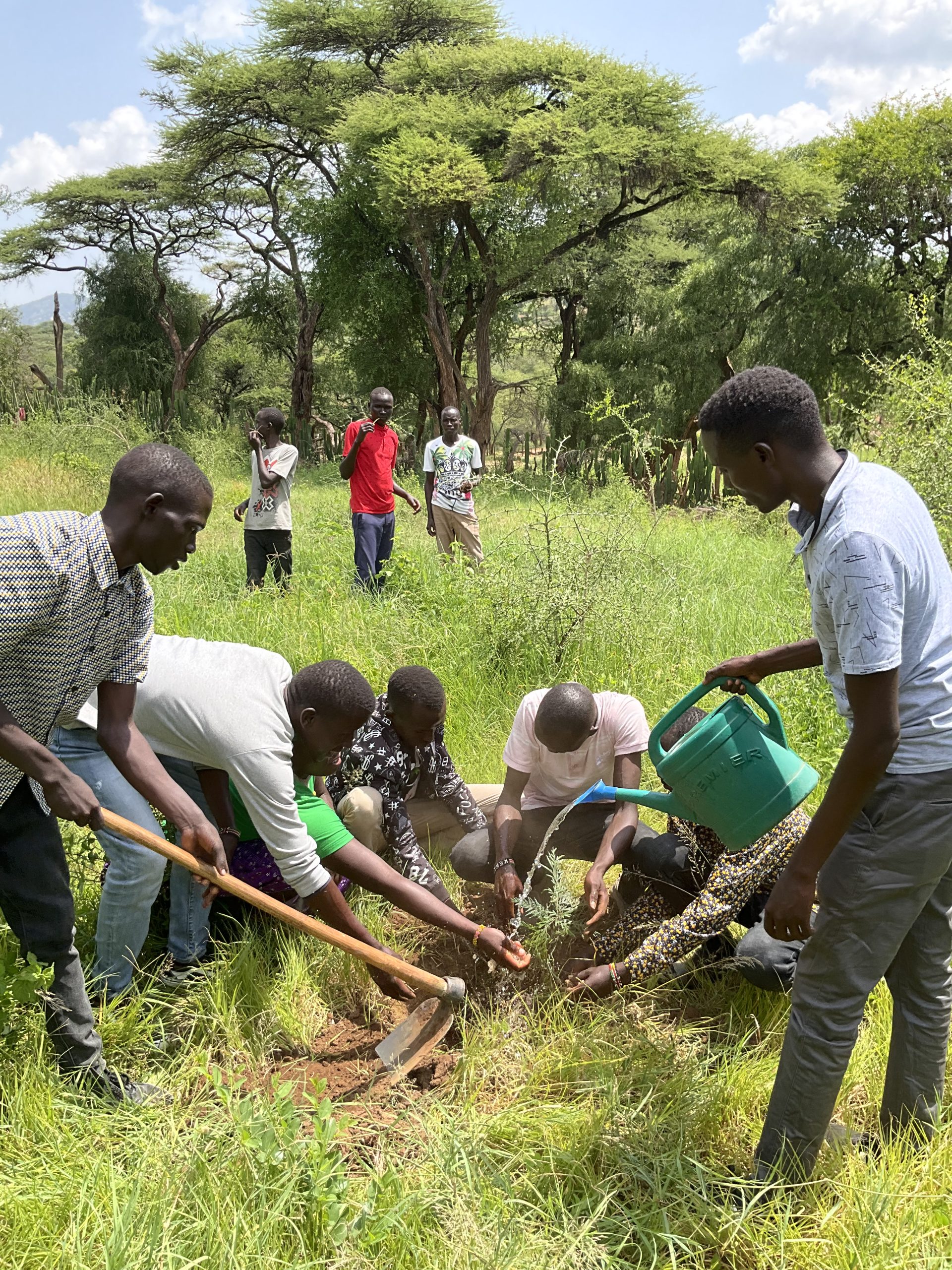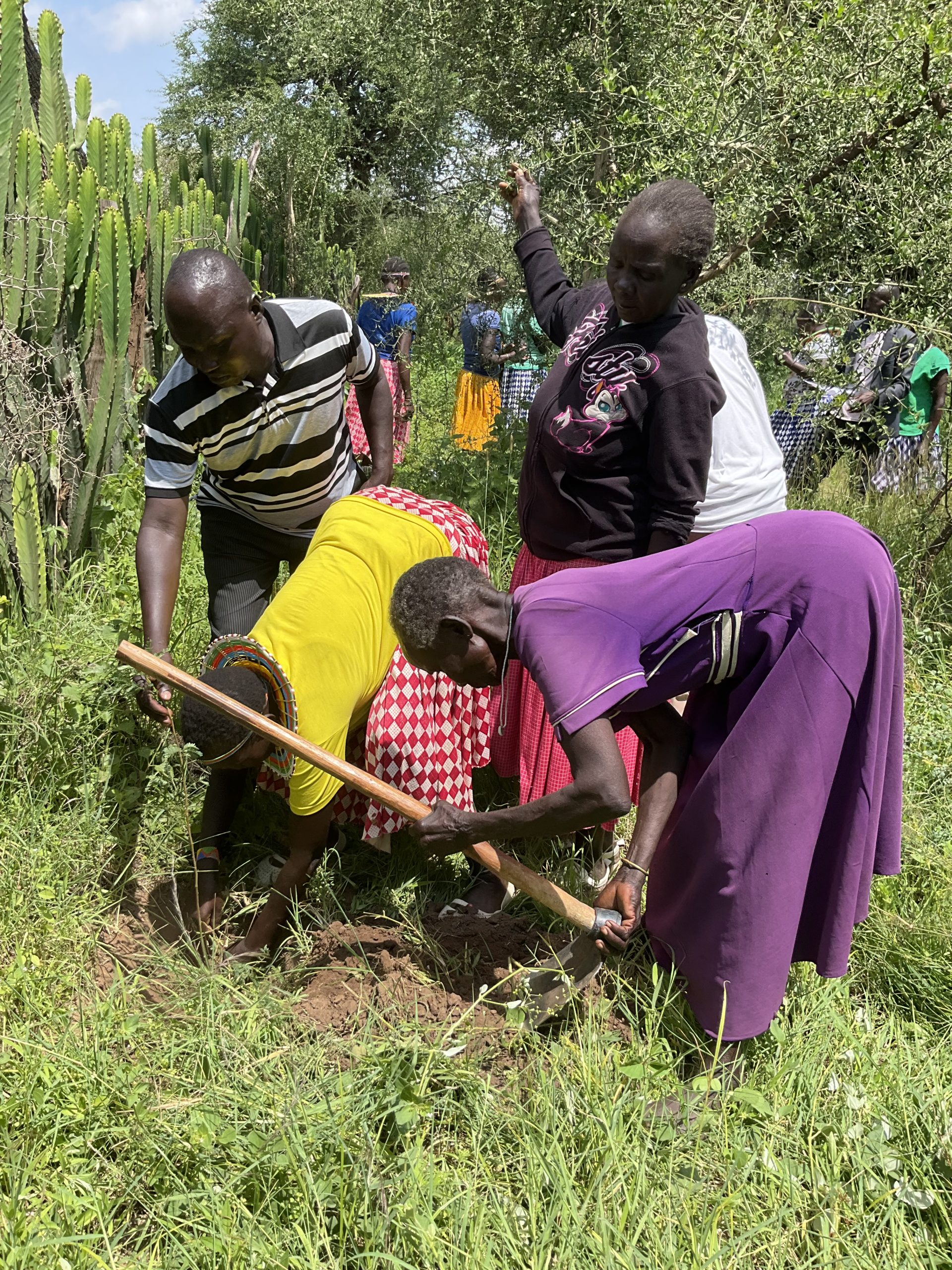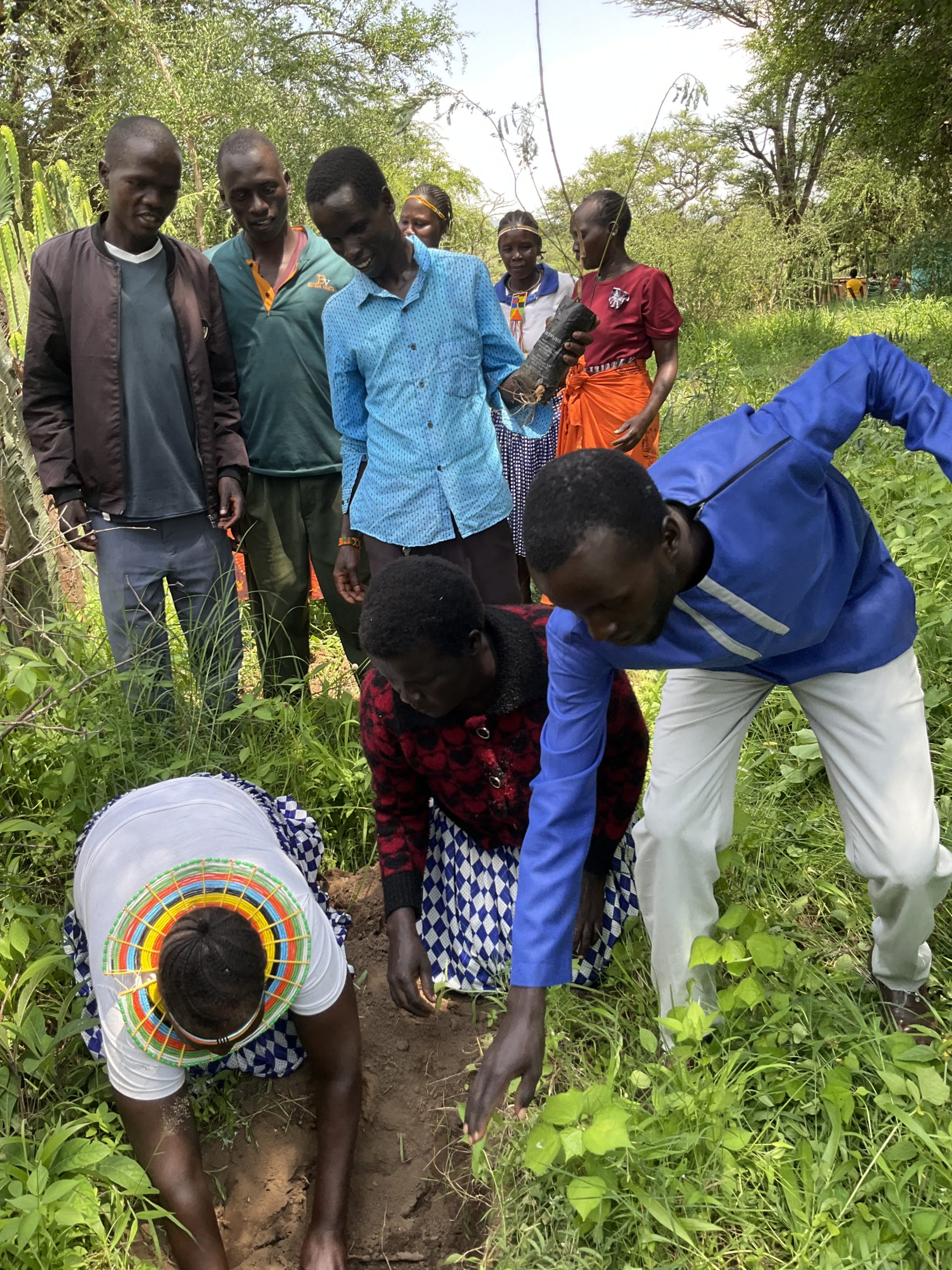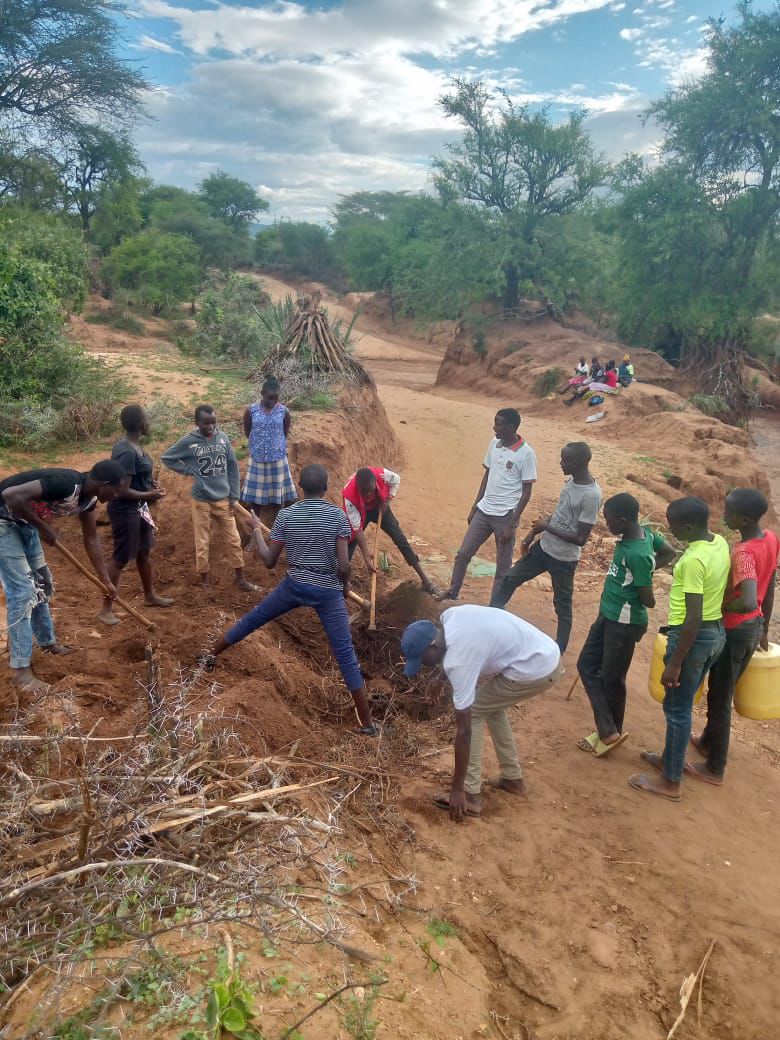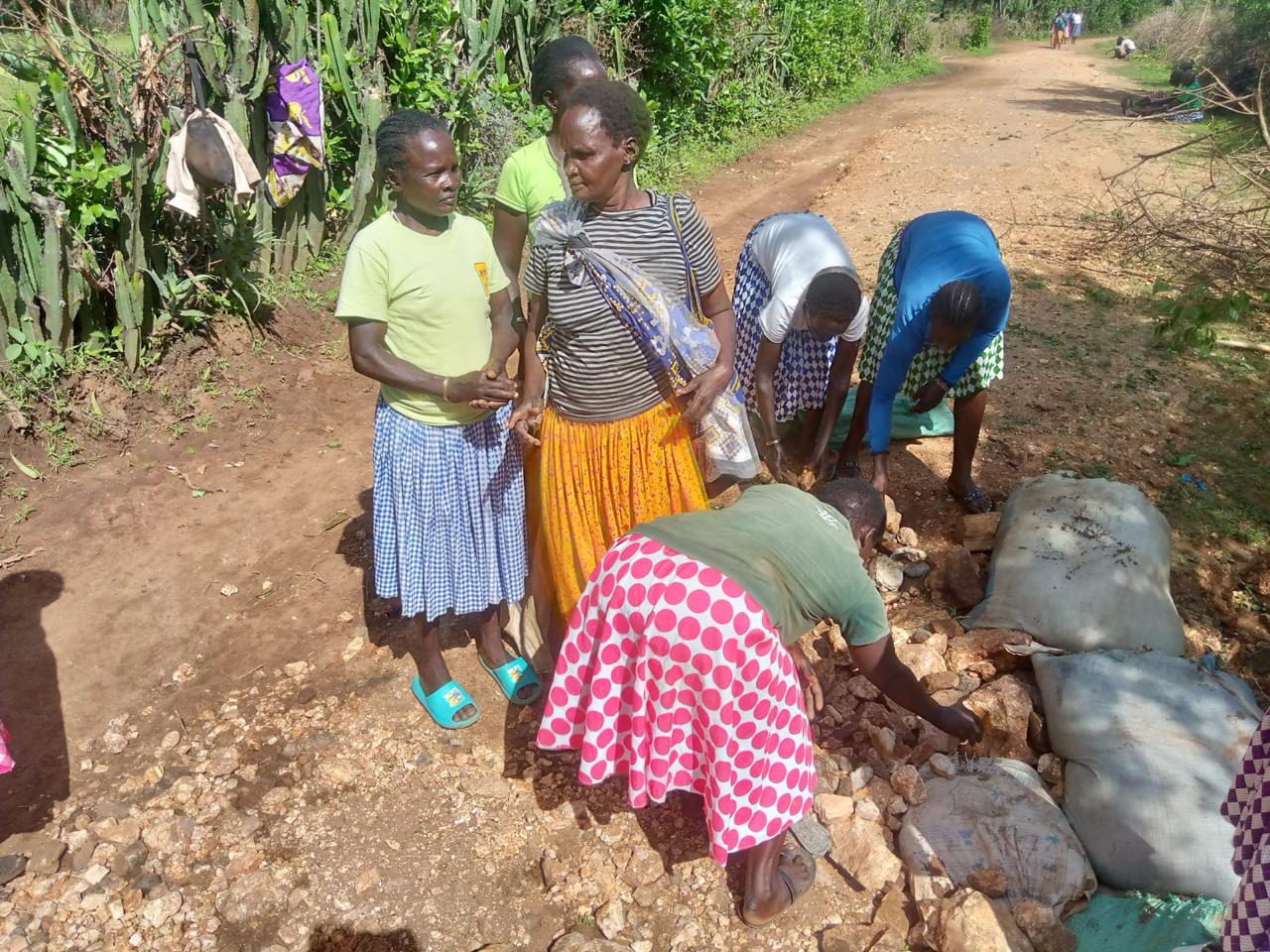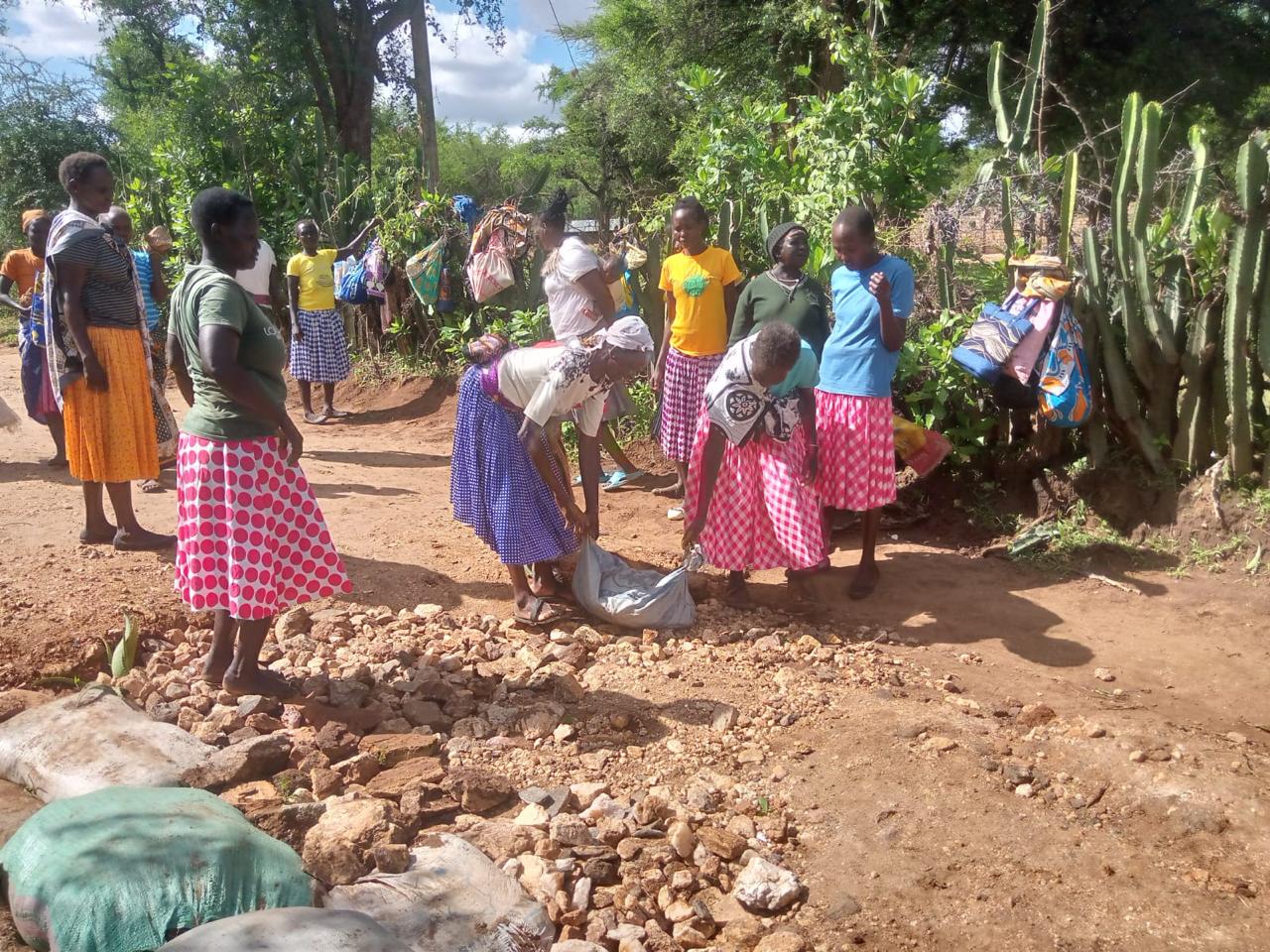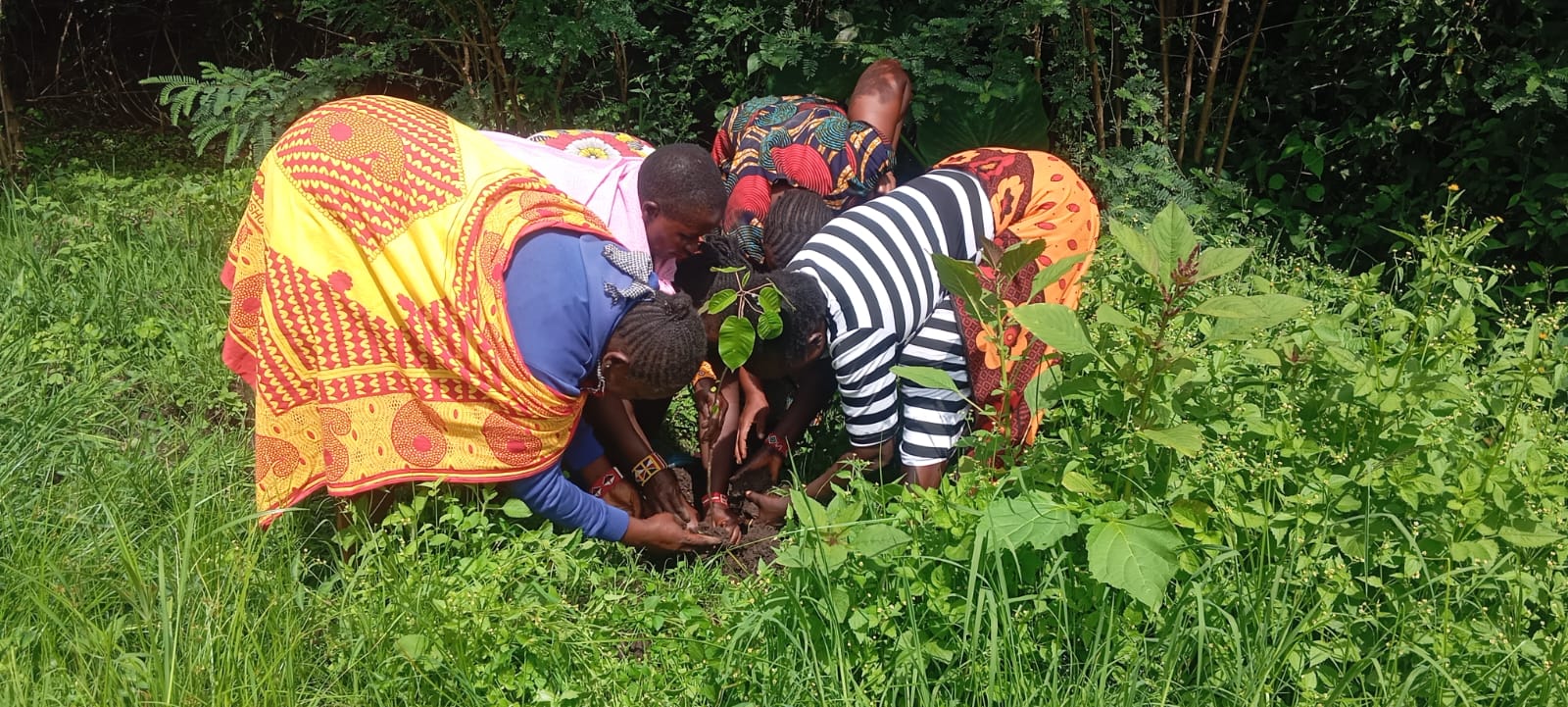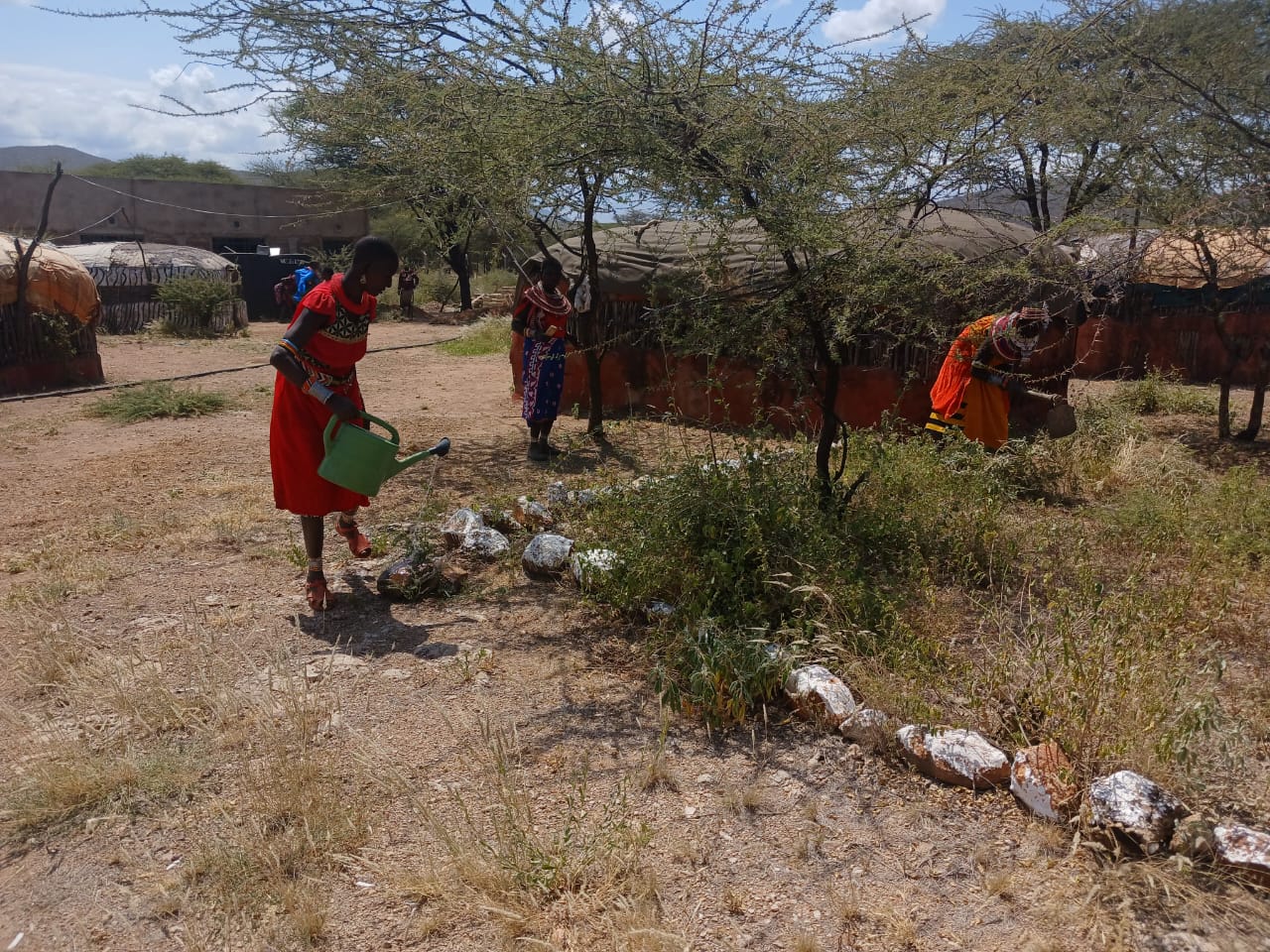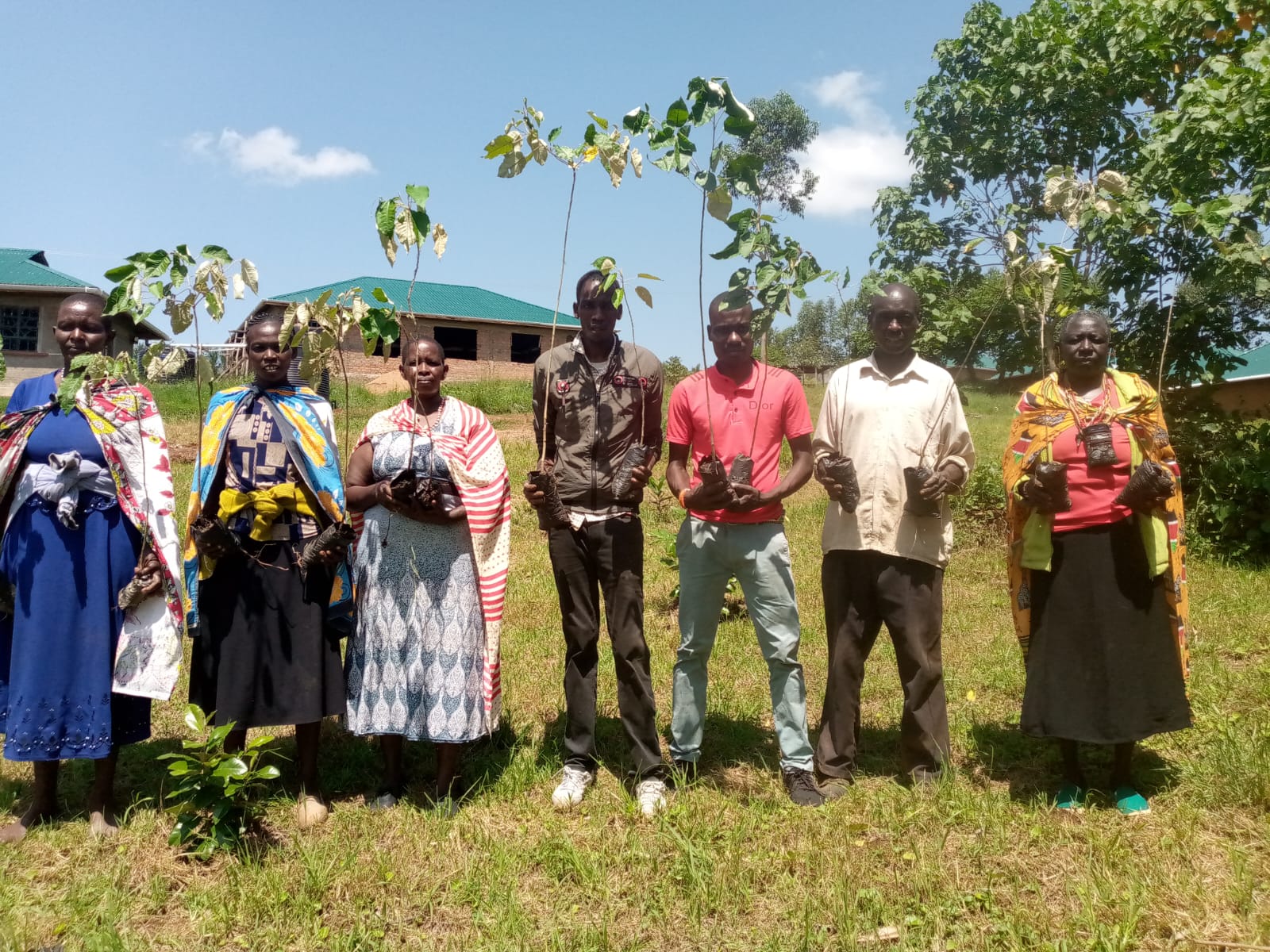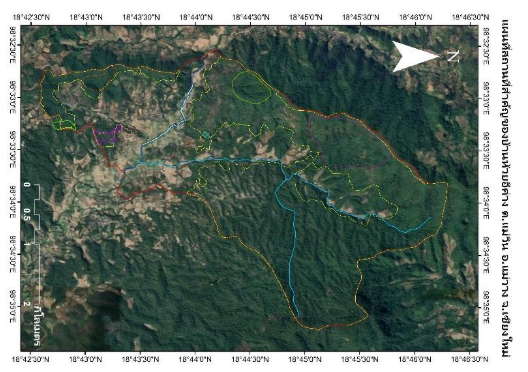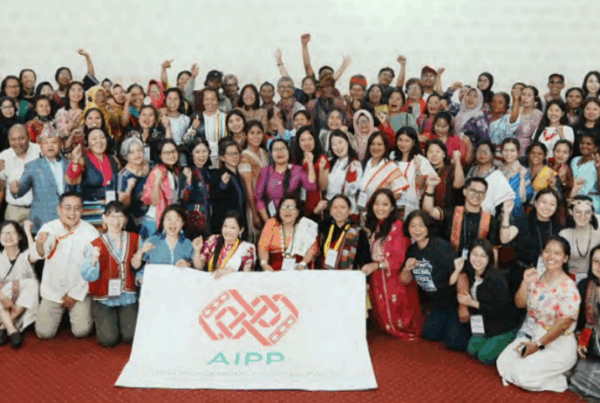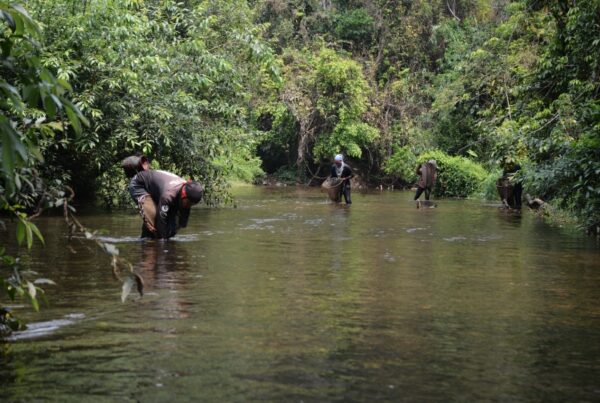World Environment Day
Indigenous Peoples of Naramam West Pokot commemorated World Environment Day with great enthusiasm. The area which is characterized by deep gullies, exhibited an immense dedication to repairing their deteriorated land. Men, women, youths, and elderly all actively participated in this effort, coming together to tackle the environmental issues they face. A range of environmental conservation-focused activities which included planting trees and working together to repair the degraded land and stop additional soil erosion. The community’s overall resolve to protect their environment for future generations is demonstrated by the participation of all age groups and genders.
Type: Blog
Region: Africa
Country: Kenya
Theme: Traditional and local knowledge; Sustainable livelihoods; Community-led conservation; Biodiversity Monitoring
Author: Indigenous Information Network (IIN)
Photo Credits: Indigenous Information Network (IIN)
I will speak about the past when our land was covered by forests. During that time, we experienced heavy rains and abundant food yields. However, as the forests were cleared, the climate changed, rainfall became unpredictable, food production declined, and droughts became frequent. Lucy Mulenkei educated us on the importance of tree planting and how deforestation contributes to drought. Since then, we have embarked on tree planting initiatives. We have also returned to using traditional herbs, medicines, and cultural practices, resulting in a significant reduction in diseases. Thanks to the heavy rains, we are now growing traditional vegetables without herbicides, unlike the introduced vegetables that required pesticides and caused health issues. – Daudi Rono Village Elder
In a similar spirit, the Maasai community of Transmara also planted trees to commemorate Environment Day, showing their dedication to preserving their environment for future generations.
As indigenous youths, we engage in extensive farming at our homes and within our community, focusing on planting indigenous vegetables. We employ organic farming methods to protect the soil and ensure that our community, who are our primary market, is not adversely affected by chemical fertilizers. Instead, we use organic fertilizers that are healthier for both the soil and our people. This approach helps us enhance food security in our community. Additionally, we create indigenous herb-based sprays from native trees to protect our vegetables, avoiding the harmful effects of chemical pesticides. We have also conducted demonstrations of organic farming in our kitchen gardens, which has greatly benefited our community. – Indigenous Youth from Enooretet Resource and Knowledge center Transmara
Similarly, the women of Kiltamany are actively engaged in revitalizing their community homesteads. They work tirelessly to restore their land, which is often dry, harsh, and fragile due to frequent droughts. By sharing knowledge and strategies with other communities, they have learned effective methods to manage and improve their environment. This collaboration has empowered them to implement sustainable practices that combat the challenges posed by their arid landscape, ultimately fostering resilience and promoting environmental restoration in their region.
World Biodiversity Day
On the commemoration of World Biodiversity Day, Indigenous Peoples highlighted the critical importance of preserving biodiversity. They emphasized that biodiversity loss disrupts ecosystems that they rely on for hunting, fishing, agriculture, and medicinal resources. Additionally, the degradation of biodiversity undermines traditional knowledge and practices that have been passed down through generations.
Traditionally the Maa peoples preserve and conserve the environment by using the forests responsibly. There were specific trees which were used to perform rituals in the Maasai culture but these trees no longer exist due to deforestation and extinction of species. Most of the medicinal species used to treat different diseases and no longer found easily and also edible fruits in the forests are no longer available and others have can no longer be eaten. Also, traditionally bees used to produce a lot of honey but due to loss of forest and pollution, there is a decrease in the amount of honey harvested. Also, it has been confirmed that many bees migrated and this affected the performance of some of the rituals. Growing up, we used to study the movement of birds to predict weather patterns but I noticed some birds have become extinct overtime. The Maa people used to have some customs that guide them in day to day activities for the wellbeing of the community but currently the customs are no longer adhered to leading to many troubles in the community. – Lucy Lemiso Chairlady Ewangan Elatia Group
For Indigenous Peoples, who often have significant cultural, spiritual, and economic ties to their environment, biodiversity is very important. For them, biodiversity is a way of life that supports their customs, means of livelihood, and general well-being, not merely a resource. Therefore, the loss of biodiversity poses serious risks to their way of life, affecting cultural traditions, food security, and health.
Forests act as homes to wild animals, herbs, and other medicinal plants. Because we have planted different medicinal plants, we no longer need to travel long distances to find medicine; we have them in our homes. In the past, we used to have a lot of forests, but there came a time when people cleared almost everything, leading to unpredictable seasons for rain and planting. This caused a lack of food and a great loss of biodiversity. Since we started planting indigenous trees, our climate has returned to normal, and food production has immensely increased. Some animals, like antelopes, hares, and buffalos, almost became extinct, but since we have replanted our forests, these animals are coming back and increasing in number. We are also producing tree seedlings, which we are taking to the Mau forest to reclaim the degraded land caused by deforestation. – Kinangare Murkuk of Namunyak Lepolosi
